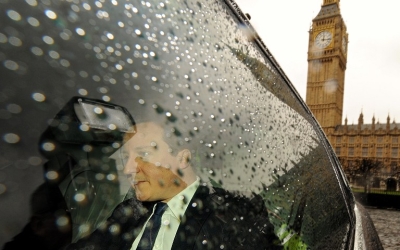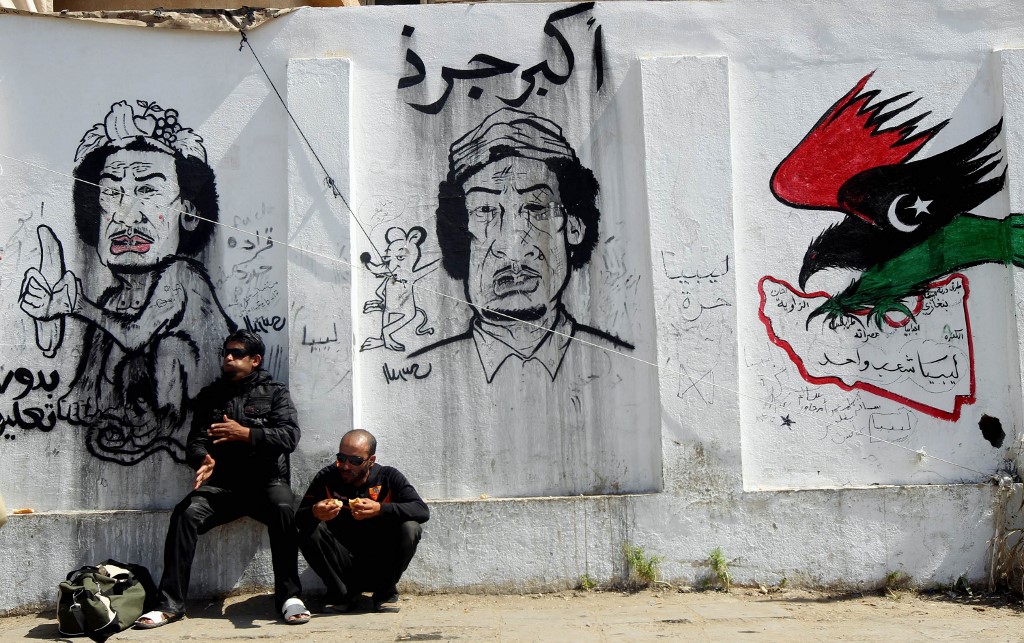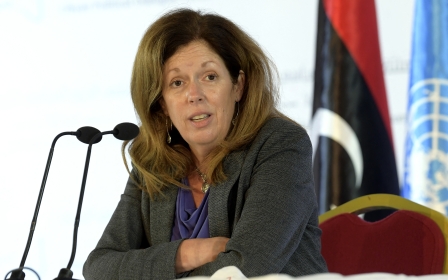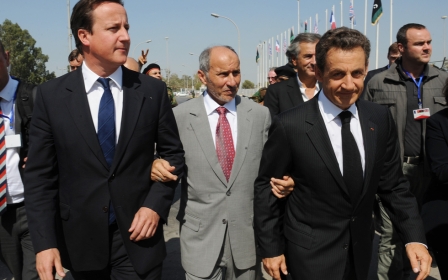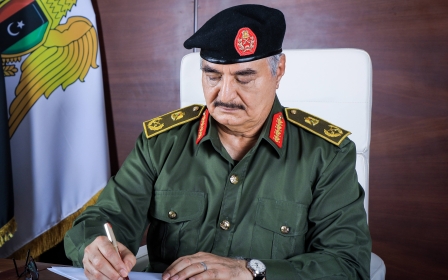Libya will never have its Chilcot inquiry. This insightful new book might help
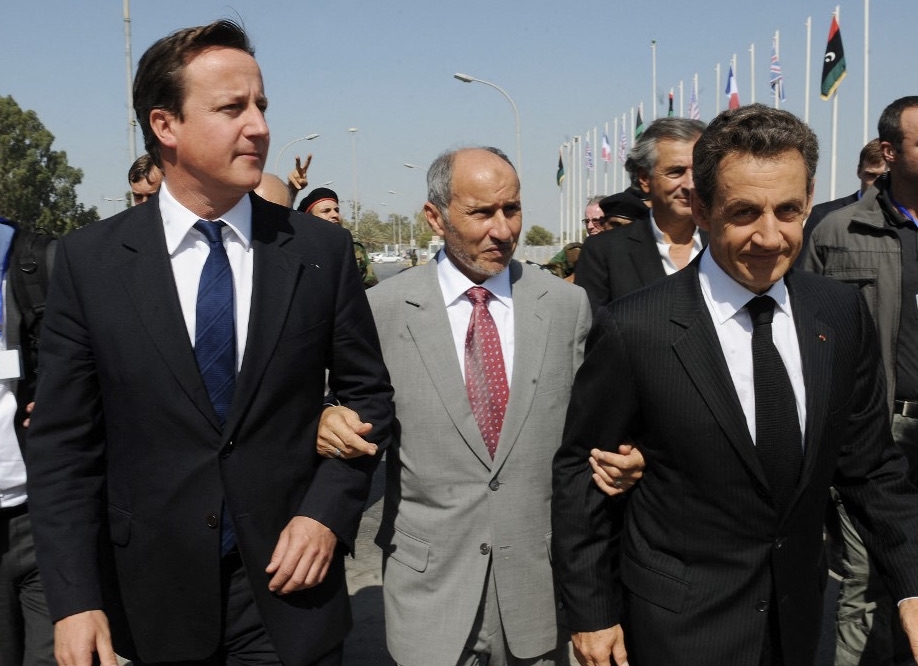
With chaos and distrust continuing to delay presidential and parliamentary elections 10 years after Libya launched its first efforts to build a stable and democratic polity after dictator Muammar Gaddafi’s downfall, the country still has many lessons to learn.
Iraq had the Chilcot inquiry, which exposed the mistakes made by war-making states the US and Britain in 2003 and in subsequent years. Libya will never have anything similar, since none of today’s players wants the spotlight turned on their blunders.
But if there were an appetite for looking back at what went wrong, and occasionally right, in the toppling of Gaddafi and the immediate aftermath, a new book provides a judicious and authoritative substitute for an inquiry report.
Martin believes that media reporting of Gaddafi’s behaviour, as well as the rhetoric of the supporters of the uprising against him, were exaggerated
Ian Martin was UN Secretary-General Ban Ki-moon’s planning adviser for Libya in 2011 and became the first head of the UN Support Mission in Libya (UNSMIL) in 2012.
His book, All Necessary Measures?, offers an excellent analysis of the key issues during the war and in the post-Gaddafi period, when the main proponents of military intervention, Britain and France, were accused of abandoning Libya and allowing militias to subvert the process of trying to unify the country under democratic rule.
New MEE newsletter: Jerusalem Dispatch
Sign up to get the latest insights and analysis on Israel-Palestine, alongside Turkey Unpacked and other MEE newsletters
Martin has done a formidable research job of trawling through statements and memoirs by the main outside players, David Cameron, Nicolas Sarkozy and Barack Obama, and their officials.
He also recounts the details of internal UN decision-making and his many encounters with rival Libyan politicians for the elections which the UN helped to organise in 2012.
Many policy questions are still contested. Was it true, for example, that Gaddafi was threatening a massacre in Benghazi, a claim which was used to justify the UN Security Council resolution for governments to take "all necessary measures" to protect civilians, including the imposition of a no-fly zone in March 2011?
Well-argued doubts were cast on British, French and US assessments of Gaddafi’s intentions by leading academic experts who gave evidence to the House of Commons Foreign Affairs Committee in 2016.
'Wildy overblown'
Martin believes that media reporting of Gaddafi’s behaviour, as well as the rhetoric of the supporters of the uprising against him, were exaggerated, and former US secretary of state Condoleezza Rice’s talk of "potential genocide" was inappropriate. Constant references by western leaders of the need to prevent another Srebrenica or Rwanda were "wildly overblown". But he concludes that fears of a bloodbath were not fabricated in order to provide an excuse for military intervention: they were genuine and real.
He describes how Britain and the US controversially argued that it was lawful to supply weapons to the anti-Gaddafi rebels in spite of an arms embargo. The British government used similar sophistry in confronting critics who said the UN resolution did not authorise intervention to bring about regime change. Britain claimed that if regime change was necessary to protect civilians, toppling Gaddafi would be legal.
Interestingly, in light of their attitudes to the current war in Ukraine, Martin reminds us that Joe Biden as US vice-president was initially against military intervention in Libya, while Antony Blinken, then Biden's national security adviser, was in favour.
Indeed, the first calls for the use of force against Gaddafi were not made by western governments but by Arab non-governmental organisations and intellectuals. The first governments to support military intervention were the six members of the Gulf Cooperation Council.
The African Union took a different view. As western bombing started, an AU high-level committee was preparing to meet Gaddafi in Tripoli. Could there have been a negotiated end to the war, as the AU proposed, in which pro- and anti-Gaddafi factions would agree to power-sharing?
The best option emerged after the threat - real or imagined - to Benghazi had been eliminated by the first western attacks. David Richards, Britain’s chief of defence staff, later recalled feeling that there should be "a pause, perhaps have a ceasefire and have another go at the political process".
But Cameron and Sarkozy were dismissive of the AU’s role and never pursued the option of peace talks. On the contrary, they were committed to victory and authorised special forces to enter Libya secretly to help the rebels, all in defiance of promises made during the passage of the UN Security Council resolution that there would be no western boots on the ground.
Tribes and militia
Martin deplores western governments’ lack of focus on political issues. They did not understand the relevance of tribes and inter-tribal rivalries, he writes, and the lack of inclusiveness of the western-supported rebel coalition, the National Transitional Council (NTC). This ignorance became critical once Gaddafi was killed.
A UN "pre-assessment" report warned of the proliferation of armed groups and said too little was known about the composition, organisation, weaponry and command-and-control arrangements of the militias on the side of the NTC. But western officials were not engaged in finding solutions. After the experience of Iraq and Afghanistan, they were against state-building.
A US State Department note in September 2011 stated that “post-conflict stabilisation in Libya, while clearly a worthy undertaking at the right level of investment, cannot be counted as one of our highest priorities. Strategically for us, Libya does not loom as large as Egypt and Syria” (House of Representatives Final Report of the Select Committee on the Events surrounding the 2012 Terrorist Attack in Benghazi, p301).
Western officials were not engaged in finding solutions. After the experience of Iraq and Afghanistan, they were against state-building
Obama left it to the British and French to oversee post-conflict efforts in Libya, but criticised them later for losing interest and engagement.
Martin says the greatest responsibility for the failure to reform Libya's security sector lay with the governments who had aided and armed the rebels. Libyan leaders also made mistakes, particularly the decision to put the armed groups on the government payroll instead of finding ways to disband them.
While deploring the lack of strategic thinking by outside governments as well as their lack of attention to the concerns of Libya’s African neighbours, Martin admits to mistakes by the UN during his time as head of mission in Libya.
Just like the foreign governments, the UN failed to promote political dialogue. The UN was lulled into a false sense of optimism after the July 2012 elections, which saw few Islamists winning seats.
A sorry tale
The UN and other external actors underestimated two factors, he writes: the conflict between Islamist and other political groups and battalions; and the rivalry of outsiders, particularly Qatar and the United Arab Emirates, being played out in Libya. In recent years the ensuing chaos has been exacerbated by the machinations of new players Russia and Turkey.
All in all, the 2011 intervention in Libya was a sorry tale. It was motivated in part by the new doctrine of "responsibility to protect", which seemed to promise much.
Instead, the blunders made in Libya did great damage to the doctrine. Libya’s experience shows that the interveners’ responsibility is not just to react and prevent but to follow through and rebuild. Otherwise, it becomes little more than irresponsible destruction.
The views expressed in this article belong to the author and do not necessarily reflect the editorial policy of Middle East Eye.
This article is available in French on Middle East Eye French edition.
Middle East Eye delivers independent and unrivalled coverage and analysis of the Middle East, North Africa and beyond. To learn more about republishing this content and the associated fees, please fill out this form. More about MEE can be found here.



